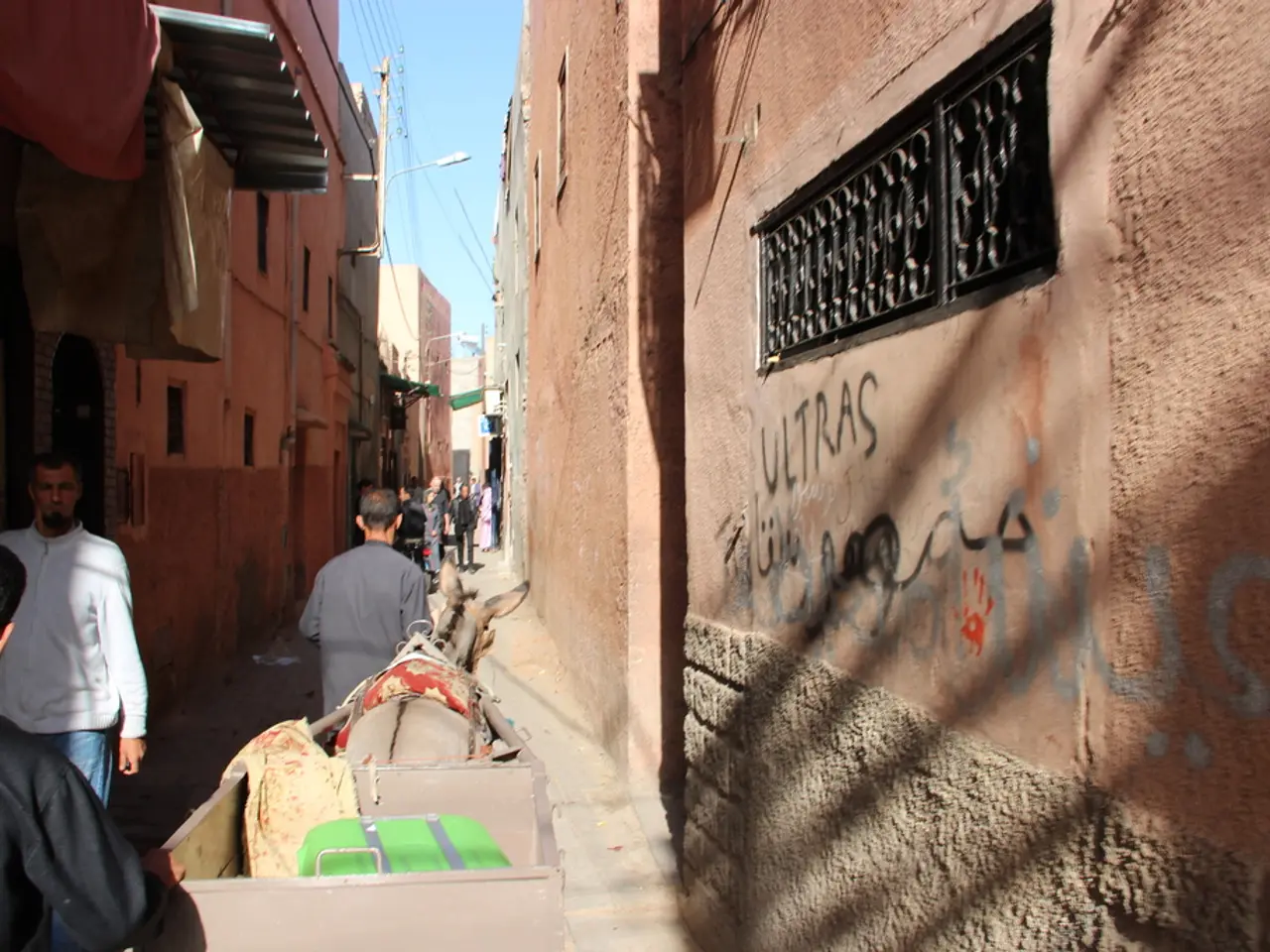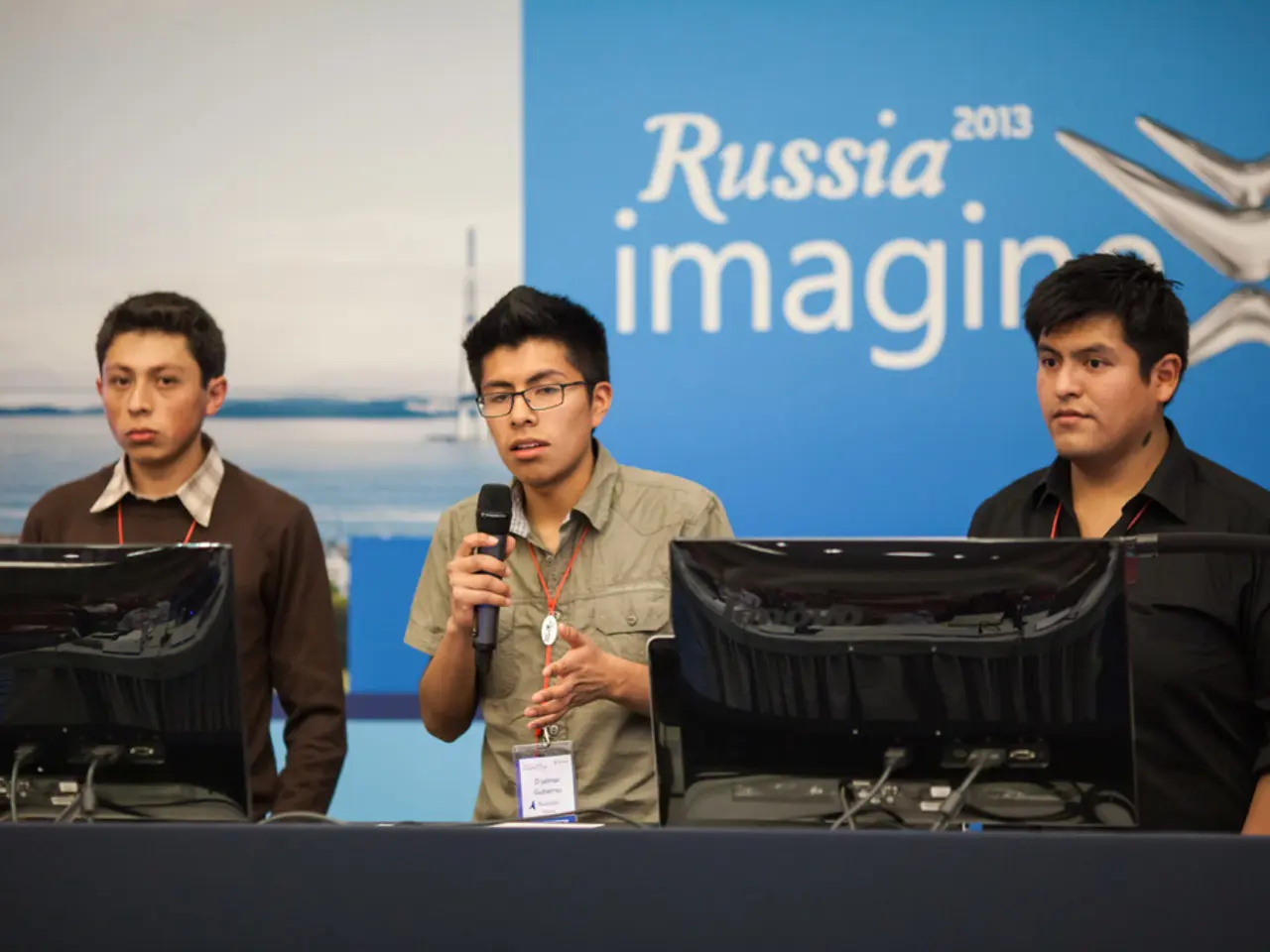Criticism of Israel's Gaza development proposals from around the world
In a recent development, the Israeli Security Cabinet's decision to seize the city of Gaza has drawn criticism from various global powers. The Qatari Ministry of Foreign Affairs has expressed concern that the planned offensive could further exacerbate the humanitarian crisis in the Gaza Strip and undermine efforts to achieve a lasting ceasefire.
The Dutch Foreign Minister, Caspar Veldkamp, has stated that "Netanyahu's government is losing Europe - completely." This sentiment is echoed by the United Arab Emirates, which has called for de-escalating measures and warned of the spread of violence, tensions, and insecurity throughout the region.
Germany has temporarily halted the export of military goods that could be used in the Gaza war, with Chancellor Friedrich Merz (CDU) making the announcement. The European Union, represented by EU Commission President Ursula von der Leyen and EU Council President António Costa, has also called on the Israeli government to reconsider its decision.
The UN Security Council will convene an emergency meeting on the matter this Sunday, with UN Secretary-General António Guterres warning of a "dangerous escalation" in the situation. The joint statement from the foreign ministries of Germany, the United Arab Emirates, Qatar, the United Kingdom, Italy, New Zealand, and Australia strongly condemns Israel's actions and warns that they could violate humanitarian international law.
The partners in the statement call for the international community to work towards a lasting ceasefire and aid deliveries for the suffering population in the Gaza Strip. They also demand the immediate release of hostages from the Islamic Hamas and call for the complete disarmament of Hamas and their exclusion from any form of government responsibility.
The Palestinian Authority (PA) should play a central role in a future government in the Gaza Strip, according to the statement, but Israel rejects this. The joint statement asserts that a two-state solution is the only way to achieve lasting peace between Israelis and Palestinians.
UN experts have called for the immediate dismantling of the "Gaza Humanitarian Foundation," criticizing it as a cover for military operations that expose civilians to indiscriminate fire at aid distribution sites. They emphasize that blocking or delaying humanitarian aid to starve civilians amounts to war crimes and adds to a well-documented genocide claim.
The UN and partner agencies report a drastic reduction in food availability, with current food assistance providing only about 26% of the pre-crisis meal supply in Gaza. Aid convoys face significant challenges, including looting and deadly incidents at Israeli checkpoints, with over 1,500 deaths reported among people trying to access food between May and early August 2025.
The death toll in Gaza from October 2023 to July 2025 approaches 60,200, with reports underscoring the scale of civilian suffering amid ongoing hostilities and severe humanitarian restrictions. Several international bodies and governments have issued joint statements calling urgent attention to the humanitarian crisis, warning that famine is unfolding at an unprecedented scale, and demanding immediate and unimpeded aid access to save lives.
In conclusion, the international community's response combines urgent humanitarian aid efforts with strong legal and moral condemnation of Israel's tactics in Gaza, emphasizing the catastrophic impact on civilians and calling for immediate cessation of actions that block aid or endanger lives.
- The UN Security Council's emergency meeting on the Gaza situation is a response to the escalating war-and-conflicts and ensuing political tensions, as various global powers voice concern over Israel's actions.
- General-news sources reporting on the Israeli government's decision to seize Gaza have revealed a call from the foreign ministries of Germany, the United Arab Emirates, Qatar, the United Kingdom, Italy, New Zealand, and Australia for international cooperation to end the conflict, provide aid, and uphold humanitarian laws.








